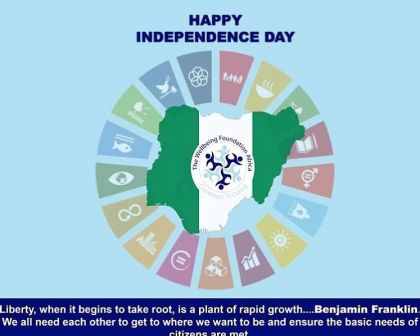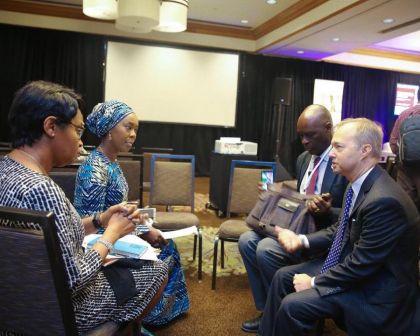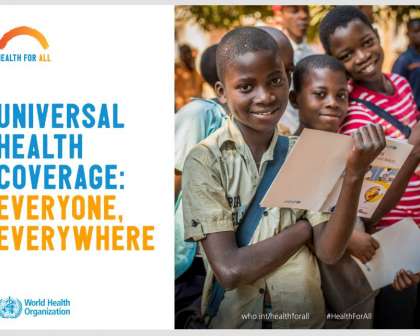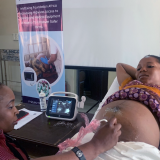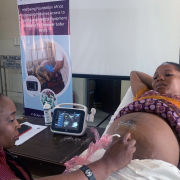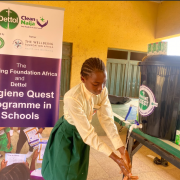
International Women’s Day: The Pledge for Parity That Could Save Nigeria’s Future Child Brides
This year’s International Women’s Day theme, ‘Pledge for Parity’ carries a message for all. Women and men are invited to take a firm step to speed up gender equality, and I want to use this day to encourage the governments across the developing world to do what they can to protect a vital and precious group in every society, adolescent girls. In Nigeria, 19% of children are married by the time they reach age 15 years, and 39% by the time they turn 18, while Niger Republic holds the highest figures on the continent, at 39% and 75% respectively.
Last week (March 2), a Nigerian teenager, was reunited with her parents after being abducted, or missing from her parent’s care and custody, for seven months. According to reports, she was snatched from a state in southern Nigeria, while helping her mother who is a street vendor, and was then taken to northern Nigeria, reportedly converted to Islam, and married to her abductor, who was apparently a customer of her mother’s. It’s now reported that she is pregnant, and at only 14 years old, this will affect her health, education, and her emotional and mental development.
Alongside this, there are two other similar cases which have come to the attention of the media. One girl is still separated from her parents. These cases represent a number of Nigerian young girls who find themselves in this unfortunate and desperate predicaments, when in fact, they should be at school, furthering that most significant empowerment factor, their right to education and a brighter future.
Education can protect girls from becoming child brides. A girl who is in school is more likely to be equipped with the knowledge and self-esteem to make choices about who she wants to marry. Parents who remove their children from school do not always sense this importance or do so for economic reasons. More must be done to ensure adolescent girls claim this right to education.
International Women’s Day has been celebrated around the world for more than 100 years, but how does this translate for girls like these? Protecting adolescent girls is crucial to the progression of Goal 5 of the Sustainable Development Goals (SDGs), and at the WBFA we are working hard to ensure that the girl-child is empowered and educated to make healthy choices from a young age, that will help her to have a positive future. However, the ambiguity in Nigerian law around the legal age of marriage does need to be addressed if we are to see lasting change in this area.
Nigerian constitutional law states that if someone wishes to revoke their citizenship they must be of full age (18 years old) to do so, but then there is a section which goes on to state that “any woman who is married shall be deemed to be of full age”. This has been contended in the past but no change was made, and while this law is addressing citizenship, it’s clear to see why it is problematic.
It’s important to stress that Nigeria is by no means alone when it comes to ambiguity in this area, and a number of African countries such as Ethiopia, Angola and Burkina Faso also have some grey areas when addressing the minimum age of marriage. Also, as one of the first African states to ratify the Maputo Protocol, a treaty which establishes the legal age of marriage at 18 years, I do believe that Nigeria is seeking to support the health of the girl child. However, while we will do all we can to ensure that girls are taught how to take care of their changing bodies, especially as they develop so uniquely, equality can only be achieved if all parties play their role, and this controversial law must be reviewed as a matter of urgency.
Another issue that this case raises is that of who the child belongs to. The Nigerian Constitution does not establish a minimum age of marriage but the Child Rights Act sets the age of marriage at 18 years. Currently, only 23 out of our 36 states have adopted this Act, so the minimum age of marriage in some areas of the country can be as low as 12 years-old. In customary tradition, a girl child belongs to her father, while a married woman is deemed to belong to her husband, and for child brides, it can be argued that the same rule applies, even if they are under 18. This can mean that some parents have no rights to fight for the return of their child, which in turn validates a kidnapping. Another layer of confusion is added when deciding which provincial/regional state’s rules to go by; the place where a girl has been abducted to; or the area her parents come from. This is another reason why it is vital that the Child Rights Act be adopted by every state, and while customary laws are a vital part of the Nigerian culture, it is a tragedy that they can be used to validate what is so clearly a violation of the girl’s and parent’s rights.
Also as we advocate for reproductive, maternal, newborn, child and adolescent health (RMNCAH), it is also deeply pertinent to consider how pregnant adolescents are supported through their pregnancy. A woman’s need for information is highest during pregnancy, but for expectant adolescents, not only does this need increase, but the risks to their health are far higher than women who are fully developed.
International Women’s Day is not simply about celebrating the successes of women, of which there have been many, or for women to become more determined to break down the barriers they face. It’s an opportunity for everyone, both male and female, to do what they can to ensure equality for women and girls around the world. We must continue to fight to ensure the stories of girls like those described above, and the Chibok girls become a thing of the past, and we must fight to ensure that these same girls have the opportunities to the safer and brighter future that they deserve.
Follow Toyin Ojora-Saraki on Twitter: www.twitter.com/ToyinSaraki
Source: huffingtonpost.com
Share this Article

Toyin Ojora Saraki
Toyin Saraki is Founder-President of the Wellbeing Foundation Africa (WBF Africa), a pan-African maternal health and wellbeing charity. WBF Africa has become one of the most influential and active organisations in the area of maternal, newborn and child health (MNCH), working across sectors to deliver innovative solutions such as its flagship WBFA IMNCH Personal Health Record© and the MamaKit. WBF Africa goes beyond aid; it is dedicated to advocacy and the formation of best practices in health, education, women’s empowerment and social welfare. A qualified barrister, Toyin Saraki built a successful private sector career before dedicating the last 21 years to philanthropy.
Read More

